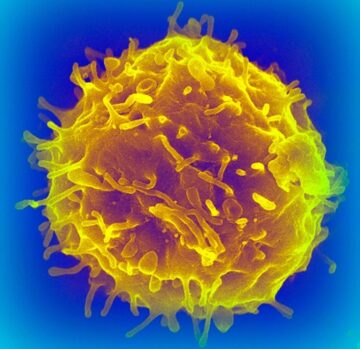Smriti Mallapaty in Nature:
 Ever since the first blood-forming stem cells were successfully transplanted into people with blood cancers more than 50 years ago, researchers have wondered whether they developed cancer-causing mutations. A unique study1 on the longest-lived transplant recipients and their donors has revealed that people who receive donor stem cells don’t seem to have an increased risk of developing such mutations. The results are surprising but reassuring, says Michael Spencer Chapman, a haematologist at the Barts Cancer Institute in London.
Ever since the first blood-forming stem cells were successfully transplanted into people with blood cancers more than 50 years ago, researchers have wondered whether they developed cancer-causing mutations. A unique study1 on the longest-lived transplant recipients and their donors has revealed that people who receive donor stem cells don’t seem to have an increased risk of developing such mutations. The results are surprising but reassuring, says Michael Spencer Chapman, a haematologist at the Barts Cancer Institute in London.
“It’s fantastic news for people undergoing these therapies,” says Alejo Rodriguez-Fraticelli, a quantitative stem-cell biologist at the Institute for Research in Biomedicine in Barcelona, Spain. Blood-forming, or ‘haematopoietic’, stem cells are precursor cells that reside in the bone marrow and give rise to all types of blood cell. They have been used to treat hundreds of thousands of people with blood cancers and bone-marrow diseases. The transplants involve depleting a person’s entire blood stem-cell reserves and replacing them with cells from a healthy donor. But researchers have long worried that putting the cells under such pressure could increase the risk of cancer. In rare cases, about 1 in every 1,000 transplants, donor cells develop into a cancer in the recipients.
More here.
Enjoying the content on 3QD? Help keep us going by donating now.
